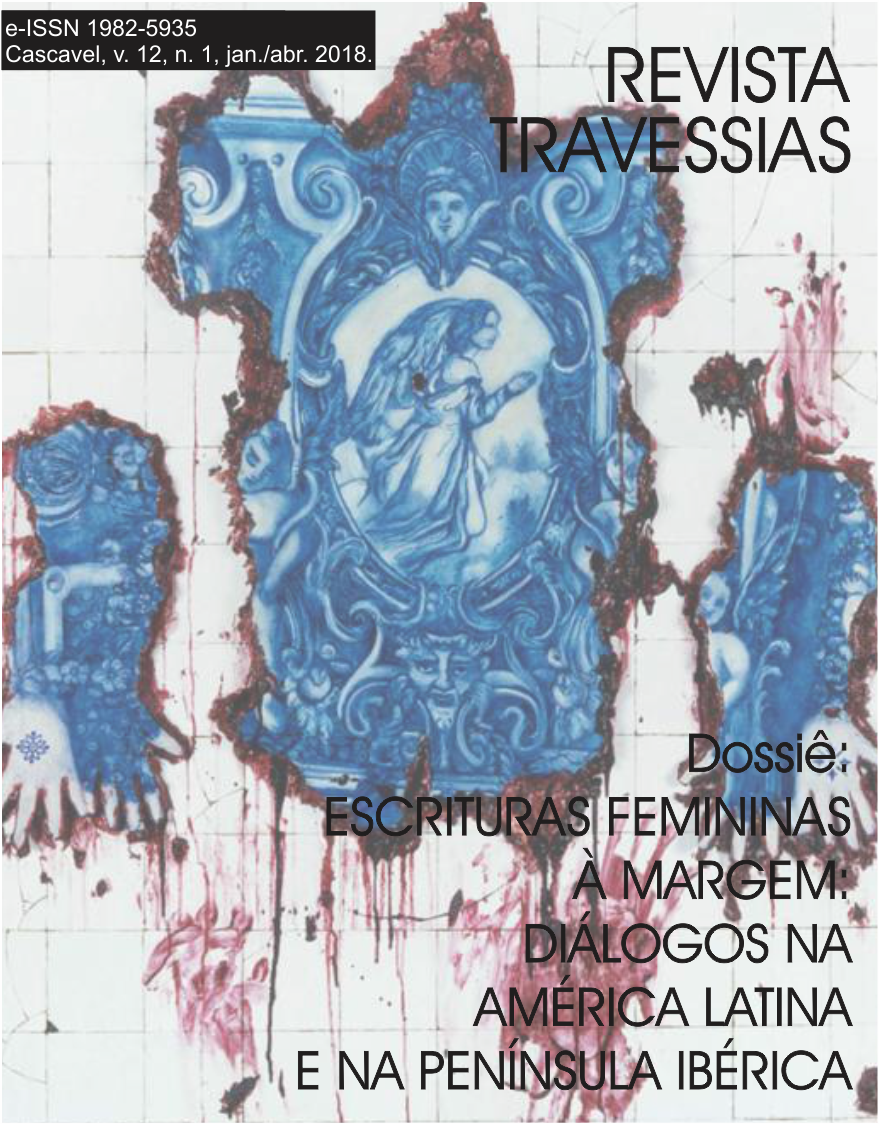A exposição das tensões humanas nas narrativas de Dinorath do Valle: uma caipira cosmopolita
Palavras-chave:
Literatura Feminina, Narrativa, Exclusão, Violência.Resumo
O objetivo deste trabalho é apresentar as narrativas produzidas por Dinorath do Valle, autora que viveu toda a sua vida no interior de São Paulo e é praticamente desconhecida do mundo acadêmico e do público leitor. Embora tenha sido premiada em vários concursos literários e conste entre as autoras reunidas por Nelly Novaes Coelho em seu Dicionário crítico das escritoras brasileiras (2002), a produção de Dinorath ainda ocupa um lugar à margem, assim como o de muitas outras escritoras brasileiras. Para chegar ao mercado editorial, construiu para si a identidade de caipira, entretanto, sua escrita não se atém às temáticas do interior; é extremamente cosmopolita, abordando o cerne das tensões humanas, muitas delas frutos da violência simbólica assimilada cotidianamente, como definiu Pierre Bourdieu (2002). Depois de publicada, utiliza a ficcionalidade para dar voz a narradores e personagens que denunciam a miséria e a desigualdade da população brasileira de uma forma amarga e crua. À luz das ideias de Reis (1992) sobre o canôn, Dalcastagnè (2012) sobre o lugar ocupado pelas mulheres diante do mercado literário e Zolin (2009) sobre a literatura de autoria feminina, entre outros estudiosos, este trabalho propõe abordar a obra literária de Dinorath do Valle em O vestido amarelo, de 1976, com objetivo de evidenciar a qualidade temática de sua narrativa.
Downloads
Referências
BOURDIEU, Pierre. A dominação masculina. Trad. de Maria Helena Kuhner. 2 ed. Rio de Janeiro: Bertrand Brasil, 2002.
COELHO, Nelly N. Dicionário crítico das escritoras brasileiras: (1711 a 2001). São Paulo: Escrituras Editora, 2002.
DALCASTAGNÈ, Regina. Literatura brasileira contemporânea: um território contestado. Vinhedo: Editora Horizonte, 2012.
FUNCK, Susana B.; SCHMIDT, Rita T. Liberdade, justiça e igualdade para as mulheres: uma entrevista com Toril Moi. Revista Estudos Feministas, v. 15, nº 1, jan.-abr. 2007, p. 107-22.
REIS, Roberto. Cânon. In: JOBIM, J.L. (org). Palavras da crítica. Tendências e conceitos no estudo da Literatura. Rio de Janeiro: Imago, 1992. Pp. 65-92
REZENDE, Vera L. G.. A crônica do dia: Dinorath do Valle nas ondas do rádio. In: Independência 1290 AM, a rádio eclética da cidade: A história de uma das mais importantes emissoras do interior do Brasil. São José do Rio Preto: Color Rio, 2006.
VALLE, Dinorath. Depoimento história de vida, [julho de 2003]. Entrevistadora Vera Lúcia Guimarães Rezende. São José do Rio Preto/SP. 2 cassetes sonoros (120 min).
VALLE, Dinorath do. O vestido amarelo. São Cristovão: Artenova, 1976.
ZOLIN, Lúcia Osana. A literatura de autoria feminina brasileira no contexto da pós-modernidade. Revista Ipotesi, Juiz de Fora, v. 13, n. 2, p. 105 - 116, jul./dez. 2009.
Downloads
Publicado
Como Citar
Edição
Seção
Licença
Aviso de Direito Autoral Creative Commons
Política para Periódicos de Acesso Livre
Autores que publicam nesta revista concordam com os seguintes termos:
1. Autores mantêm os direitos autorais e concedem à revista o direito de primeira publicação, com o trabalho simultaneamente licenciado sob a Licença Creative Commons Attribution que permite o compartilhamento do trabalho com reconhecimento da autoria e publicação inicial nesta revista.
2. Autores têm autorização para assumir contratos adicionais separadamente, para distribuição não-exclusiva da versão do trabalho publicada nesta revista (ex.: publicar em repositório institucional ou como capítulo de livro), com reconhecimento de autoria e publicação inicial nesta revista.
3. Autores têm permissão e são estimulados a publicar e distribuir seu trabalho online (ex.: em repositórios institucionais ou na sua página pessoal) a qualquer ponto antes ou durante o processo editorial, já que isso pode gerar alterações produtivas, bem como aumentar o impacto e a citação do trabalho publicado (Veja O Efeito do Acesso Livre).
Licença Creative Commons
Esta obra está licenciada com uma Licença Creative Commons Atribuição-NãoComercial-CompartilhaIgual 4.0 Internacional, o que permite compartilhar, copiar, distribuir, exibir, reproduzir, a totalidade ou partes desde que não tenha objetivo comercial e sejam citados os autores e a fonte.



